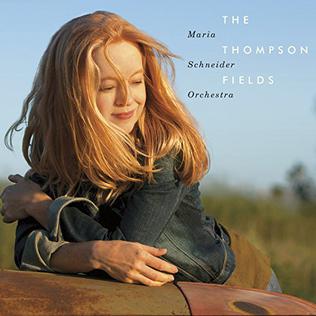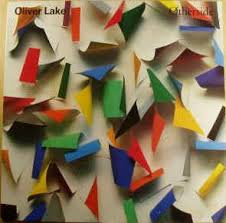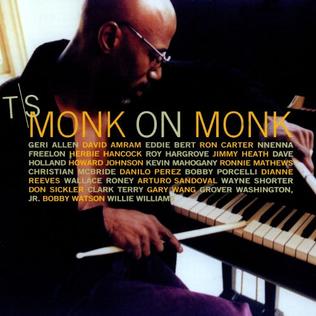
A musical ensemble, also known as a music group or musical group, is a group of people who perform instrumental and/or vocal music, with the ensemble typically known by a distinct name. Some music ensembles consist solely of instrumentalists, such as the jazz quartet or the orchestra. Other music ensembles consist solely of singers, such as choirs and doo wop groups. In both popular music and classical music, there are ensembles in which both instrumentalists and singers perform, such as the rock band or the Baroque chamber group for basso continuo and one or more singers. In classical music, trios or quartets either blend the sounds of musical instrument families or group together instruments from the same instrument family, such as string ensembles or wind ensembles. Some ensembles blend the sounds of a variety of instrument families, such as the orchestra, which uses a string section, brass instruments, woodwinds and percussion instruments, or the concert band, which uses brass, woodwinds and percussion.

A big band or jazz orchestra is a type of musical ensemble of jazz music that usually consists of ten or more musicians with four sections: saxophones, trumpets, trombones, and a rhythm section. Big bands originated during the early 1910s and dominated jazz in the early 1940s when swing was most popular. The term "big band" is also used to describe a genre of music, although this was not the only style of music played by big bands.

The Art Ensemble of Chicago is an avant-garde jazz group that grew out of the Association for the Advancement of Creative Musicians (AACM) in the late 1960s. The ensemble integrates many jazz styles and plays many instruments, including "little instruments": bells, bicycle horns, birthday party noisemakers, wind chimes, and various forms of percussion. The musicians would wear costumes and face paint while performing. These characteristics combined to make the ensemble's performances both aural and visual. While playing in Europe in 1969, five hundred instruments were used.
A quintet is a group containing five members. It is commonly associated with musical groups, such as a string quintet, or a group of five singers, but can be applied to any situation where five similar or related objects are considered a single unit.

The Preservation Hall Jazz Band is a New Orleans jazz band founded in New Orleans by tuba player Allan Jaffe in the early 1960s. The band derives its name from Preservation Hall in the French Quarter. In 2005, the Hall's doors were closed for a period of time due to Hurricane Katrina, but the band continued to tour.

James Lloyd Morrison AM is an Australian jazz musician. Although his main instrument is trumpet, he has also performed on trombone, tuba, euphonium, flugelhorn, saxophone, clarinet, double bass, guitar, and piano. He is a composer, writing jazz charts for ensembles of various sizes and proficiency levels.

Social Call is an album by Betty Carter featuring Ray Bryant and a big band arranged by Gigi Gryce. Of its eleven tracks, the first six were recorded in 1955 and originally released as part of the album Meet Betty Carter and Ray Bryant. The other five tracks were recorded in 1956 but remained unissued until this compilation, which Columbia Records released in 1980.

'Round Midnight is a 1963 studio album by the American jazz singer Betty Carter that was arranged by Claus Ogerman and Oliver Nelson.

The trumpet repertoire consists of solo literature and orchestral or, more commonly, band parts written for the trumpet. Tracings its origins to 1500 BC, the trumpet is a musical instrument with the highest register in the brass family.

City of Glass, an album originally issued as a 10" LP by Stan Kenton, consists entirely of the music of Bob Graettinger. The original album has been reconstituted in different LP re-issues, and the entire set of Kenton/Graettinger Capitol Records sessions is on the digital CD City of Glass.
The West Australian Youth Jazz Orchestra (WAYJO) is an Australian youth jazz orchestra based in Perth, Western Australia. WAYJO has 54 jazz musicians between 14 and 25 years of age and currently presents over 55 performances a year across Australia.

Live at Jazz Standard is an album by the Mingus Big Band that won the Grammy Award for Best Large Jazz Ensemble Album in 2011. The album documents a concert at the Jazz Standard club in New York City on New Year's Eve, 2009. The concert and the album commemorate the fiftieth anniversary of songs recorded by Charles Mingus. The band was conducted by Gunther Schuller and included trumpeter Randy Brecker, who played with Mingus during the 1970s.
The Christian McBride Big Band is a 17-piece big band whose debut album The Good Feeling received the Grammy Award for Best Large Jazz Ensemble Album in 2012.

The Thompson Fields is an album by the Maria Schneider Orchestra that won the Grammy Award for Best Large Jazz Ensemble Album in 2017. Schneider was the composer, conductor, and co-producer of the autobiographical work. The title comes from the Minnesota farm where she was raised.

Gerry Mulligan and the Concert Jazz Band at the Village Vanguard is a live album by jazz saxophonist and bandleader Gerry Mulligan featuring performances recorded at the Village Vanguard in late 1960 which were released on the Verve label.

The Total J.J. Johnson is an album by jazz trombonist and arranger J. J. Johnson and Big Band recorded in 1966 for the RCA Victor label.

Otherside is an album by American jazz saxophonist Oliver Lake featuring a quintet and a big band, which was recorded in 1988 and released on the Gramavision label. The big band pieces were commissioned by the Jazz Coalition with funding from the Massachusetts Council on the Arts and Humanities New Works Program.

Monk on Monk is an album by the drummer T. S. Monk, recorded in 1997 and released on the N2K label.

The New Wave in Jazz is a live album recorded on March 28, 1965 at the Village Gate in New York City. It features groups led by major avant-garde jazz artists performing at a concert for the benefit of The Black Arts Repertory Theater/School founded by Amiri Baraka, then known as LeRoi Jones. The album was released on LP in 1965 on the Impulse! label, and was reissued on CD in 1994 with a different track listing.

Data Lords is a large-ensemble jazz album by the Maria Schneider Orchestra that was released in 2020.

















